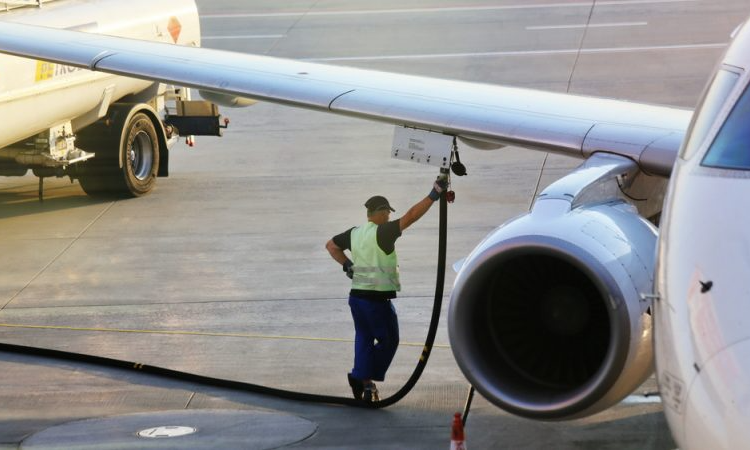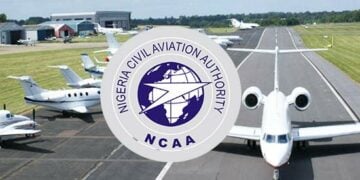Amid the fear of safety by air travellers due to contamination of the main fuel tanks of aircraft B737-300, Registration Marks; 5N-MHM, belonging to Max Airline, the Nigerian Civil Aviation Authority of Nigeria (NCAA), has allayed the fear of the traveling public, assuring passengers of safety.
Speaking to LEADERSHIP against the backdrop of the suspension of Max Air operation by NCAA due to the Auxiliary Power Unit (APU) shutdown on ground Yola Airport on the 7th of July, 2023, the director general of NCAA, Capt. Musa Nuhu, explained that the authority has launched investigation to unravel the source of the fuel contamination.
Capt. Nuhu stated that the NCAA had also dispatched a team of inspectors to Lagos, Abuja and Kano where Max Air aircraft refueled.
“On the issue of fuel contamination, we are doing a full investigation. We learnt the aircraft took fuel in Lagos, Kano and Abuja and we are investigating the fuel suppliers to see their fuelling procedures to ensure everything is okay. I expect to get a report very soon,” he said.
Nuhu who stated that the NCAA remains committed to the safety of air passengers assured them that the regulatory authority is up and doing.
“We are doing quite a lot. We are going to issue another AOL (All Operators’ Letter) to remind them (operators) to test quality of fuel before fuelling their aircraft.
I want to assure the travelling public that there is no cause for alarm.”
He also disclosed that the civil aviation authority would have a meeting with the Nigerian Midstream, Downstream Petroleum Regulatory Authority (NMDPRA), the agency regulating the fuel suppliers which he said has a responsibility to ensure the fuel is not contaminated.
Speaking to LEADERSHIP, tan engineer with the International Aviation College, Kwara State, Engr. Ahmadu Hadi, commended the NCAA, saying they have done the right thing by suspending Max air operation.
According to him, the suspension is a wakeup call to other airlines to always check for water in their fuel compartment before moving their aircraft out of the station.
He said, “It’s a standard practice in the industry why I say so is that the normal procedure is for pilot or the airline to check aircraft for fuel condensation because of the weather that changes. Even if the tank doesn’t have water from the beginning, it may from the condensed air turn into water due to changes in weather.
“However, every morning your are required as a pre flight test to take samples from different sides of the tank to the lowest part because at the end, the weather changes and we have air and air will condensed into water. If their is no water before because of condensation you must check the fuel so every morning before moving aircraft from one station to the other, you must check water from the aircraft.”
“Also, airlines are neglecting this pre-flight activity and NCAA realised that what happened to Max Air was due to water condensation and to get every airline alerted that say this procedure must now be adhered to and it must be monitored to forestall further occurrence. I am sure with the Max Air debacle, every airline will sit up,” he stated.











